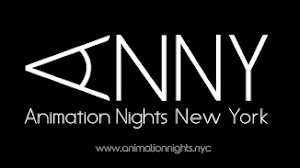Manga and Anime Go To Hollywood [Book Review]
 When I first heard that there is a book entitled Manga and Anime Go To Hollywood, I confess that I was taken aback. The history of Hollywood adaptations of manga or anime is a pretty brief one, surely? The notable ones released so far- Speed Racer and Dragon Ball Evolution were both commercial and critical failures. If anything, surely it was a bit early- with the adaptations of Ghost In The Shell and Death Note around the corner, we can't be sure whether this trend will continue. However, Northrop Davis's book has much more to it than that and proves an interesting read.
When I first heard that there is a book entitled Manga and Anime Go To Hollywood, I confess that I was taken aback. The history of Hollywood adaptations of manga or anime is a pretty brief one, surely? The notable ones released so far- Speed Racer and Dragon Ball Evolution were both commercial and critical failures. If anything, surely it was a bit early- with the adaptations of Ghost In The Shell and Death Note around the corner, we can't be sure whether this trend will continue. However, Northrop Davis's book has much more to it than that and proves an interesting read.The book explores the relationship between Hollywood film and television and Japan's animation and comics industries. This is a relationship that goes right to the beginning of the manga industry as we know it. God of Manga Osamu Tezuka was famously influenced by Disney. But his comics - and those of who came after him- were also hugely influenced by wider Hollywood influences, as they tried to make their manga cinematic, and push the medium forward.
Fast forward to today, when a new generation of western animators, film-makers and directors have been raised on a mix of western and Japanese influences. creating increased hybridization. Meanwhile, the output of western creators have continued to influence manga artists and anime producers alike. There has never been an exploration of this fascinating relationship in quite this detail before.
Davis convincing lays down his credentials to be qualified to write on the subject. A former Screenwriter turned Academic (who teaches the only Manga production course in the US), he was one of the people who pitched Battle Angel Alita, which 20th Century Fox subsequently acquired for one James Cameron. Cameron has been trying to get it off the ground ever since, and it has recently started moving forward again, this time with Robert Rodriguez in the director's chair and Cameron producing.
The cross-pollination between the two worlds is actually much more common than you may think. As far back at the 60's, Stanley Kubrick tried (unsuccessfully) to convince Tezuka to produce designs for 2001: A Space Oddessey. Later in life, he spent years trying to produce the movie AI: Artifical Intelligence (eventually completed by Steven Spielberg) and it's hard no to see an Astro Boy influence in the light of that connection.
Davis has assembled an impressive line-up of interview subjects from both sides of the Pacific, including graphic novel artist and writer Robert Napton, Michael Arias (director of Tekkonkinkreet) and Hikaru Sasahara (president of Digital Manga Publishing).
This book manages to be several things in one. As well as an exploration of the connection between the two worlds, it also works as an overview of the current manga and anime industry and a kind of "how to" guide for adapting manga and anime sources for a western audience. It features "Case studies" of two adaptations, Speed Racer, and the US/Hong-Kong co-production Astro Boy. Davis considers the former to be a success (creatively), and the latter a failure, but of course the reader's mileage may vary here.
In fact, there were numerous times that I found that I disagreed with some of the theories and assumptions that Davis worked from. For example, the suggestion that manga is an entirely separate medium from western comics- as opposed to simply being comics that happen to be from Japan, or the misconception that characters in manga and anime "look western". Of course, you don't need to agree with everything in a book to enjoy it, and one of the strengths of books like this is they are only the start of the conversation.
One element of the book that is not so successful is in the selection of images. It's illustrated throughout with reproductions of some genuine (often classic) manga and stills from films, and that's all as you would expect. However, the decision was made to feature a surprisingly high proportion of amateur pseudo-manga produced by students on his course. It's more than a little strange to see such a high proportion of the book given over to these works, which seem to be being presented as equal as works produced by professionals. If anything, these examples of what the often-lamented publisher Tokyopop referred to as "Original English Language Manga", actually seem to outnumber the authentic stuff in this book. They also are frequently referred to in the book's text itself.
It's a strange choice, and arguably a misstep, but it shouldn't be taken to undermine the fact that this book is both an impressive achievement, and an enjoyable read. Whether you are a manga and anime newbie or a self-styled expert, this offers a look at the industry from a whole new perspective. And with manga and anime based properties potentially the next big thing in Hollywood, it offers an exciting look at what the future could hold. Recommended.
Manga & Anime Go To Hollywood is published by Bloomsbury Books.






















